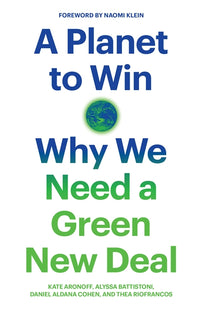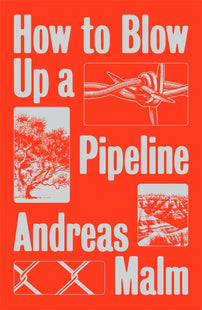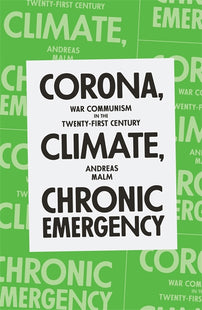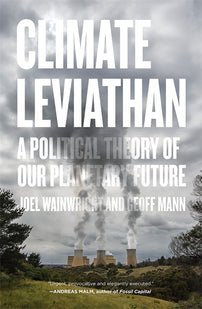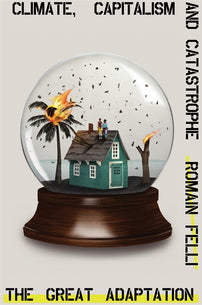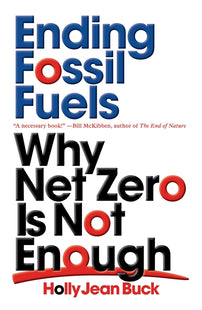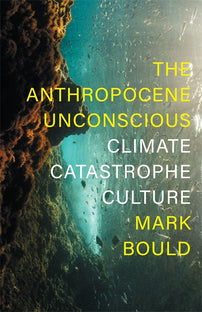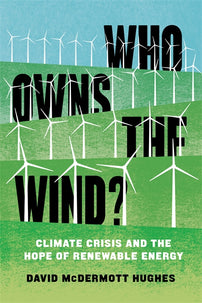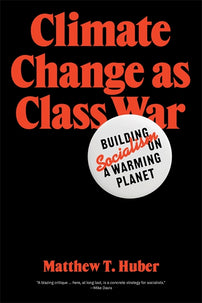Rare Gems
Martín Arboleda talks extractivism, financialization, and the Global South in this interview deep dive into his book, Planetary Mines: Territories of Extraction Under Late Capitalism

Interview with Martín Arboleda by Nicolas Allen
Everyone is at least dimly aware that our smart phones and high-tech devices are powered by minerals which are prized from the furthest-flung corners of the earth. Scholars and scientists have even done extensive studies documenting the disastrous environmental and social effects of this type of large-scale resource extraction.
Fewer, though, have attempted what Martín Arboleda sets out to do in Planetary Mines: Territories of Extraction Under Late Capitalism (Verso, 2020). Arboleda takes us from resource extraction sites, following the minerals as they make their way along complex logistics chains to the Chinese factories where the most advanced technologies are manufactured. From there, Arboleda shows how the most cutting edge technologies are then sent back to the same sites of extraction in Latin America and the rest of the world, in a massive deployment of artificial intelligence, big data and robotics that looks more like a moon landing than the pick-and-shovel mining of yesteryear.
The circle that Arboleda traces is what he calls “the planetary mine.” According to the author, this global, technologically integrated resource commodity chain is the true face of what techno-utopians call the Fourth Industrial Revolution: a world of intensified labor exploitation, immiseration and environmental degradation. Nicolas Allen spoke with Arboleda to understand what the revolution in resource extraction can teach us about global capitalism and about what can be done to stop its disastrous socio-environmental effects.
NA
Extractivism is a strange concept. People seem to use it at cross-purposes to talk about things as different as 16th-century colonial plunder and 21st-century open-pit mining. How do you use the term?
MA
Well, the concept initially emerged in Latin American activist circles as a way to denounce the socio-ecological effects of large-scale resource extraction. The strength of that first phase, from the early 2000s, was that it identified the rentier conditions that underlie the appropriation and destruction of nature, while also highlighting the importance of indigenous and subaltern movements for thinking of alternatives to development.
However, in my view, one of the problems with that initial approach to extractivism was that it amounted to a number of case studies that didn’t have much to say about the place of resource extraction in the larger historical unfolding of the capitalist mode of production. As a result of that first phase, the concept of extractivism has tended to exist mainly as a political slogan.
Myself and others, when we speak of extractivism, we try to avoid placing exclusive emphasis on the primary sector individually considered ––we are really interested in investigating the relationship between extractivism and the historical unfolding of the capitalist mode of production. These kinds of readings explore the relationship between extractivism and large-scale transformations of labor, the household, the financial system, digital technologies and global supply chains, among other things.
The central argument of my book Planetary Mine is that the recent technological and organizational transformations of the mining industry are much more than a simple shift in the intensity and scale of mineral extraction. I argue that what I call the “planetary mine” emerges as a product of two world-historical transformations in the capitalist mode of production: a new geography of late industrialization that is no longer confined to the traditional heartland of capitalism (i.e., the West), and second, a process of advanced integration of the global economy through what has been termed "the logistics revolution."
Put differently, where the rise of the so-called global factory revolutionized advanced manufacturing in recent decades, I argue that this was possible because there was a corollary revolution in the world of natural resources: a planetary mine densely interconnected through circuits of labor, logistics, finance ––and political conflict.
[book-strip index="1" style="display"]NA
So you’re saying that resource extraction –typically seen as external or incidental to the manufacturing industry– is actually something that has evolved alongside industrial capitalism?
Exactly. To some people that might seem obvious. However, most studies of extractive processes just focus on the relationship between a given company, a state and a community in a local area. These case studies are often illuminating, but they tend to overlook the fact that the mine, oil well or agro-industrial enterprise is only the beginning of a large web of social relations and technical infrastructures that in many cases cover a considerable part of the planet's surface.
Their starting premise is that primary commodity production is already globalized; but they rarely make an effort to investigate the mechanisms, networks, flows and power relations that make this globalization possible in the first place. In other words, they tend to presuppose what in fact is the main thing that needs to be explained.
For example, we can’t truly understand the recent “commodity boom” in Latin America without first understanding how the reconfiguration of the electronics industry ––led by companies such as Apple, Microsoft, Foxconn, Huawei, etc.–– has not just enabled a new paradigm of industrial organization and urbanization, but how that paradigm has a direct impact on the logics and strategies of natural resource extraction in the region. This industrial paradigm, usually referred to as "Wintelism", is based on a clear functional separation of innovation and manufacturing in the production of electronic devices.
Take Foxconn's largest factory in Shenzhen: it had nearly 400,000 workers at its peak ––four times as many as Ford's River Rouge manufacturing complex in the US. As would be expected, that type of industrial expansion is also manifested in an exponential increase in the demand for resources, and new kinds of resources. A next-generation smartphone can contain up to 30 different minerals, and this in itself presupposes a highly technologically sophisticated global supply chain –not to mention extraction techniques– that can connect these global factories with multiple extraction sites around the world.
NA
You said before that the relocation of “capitalism’s heartland” toward the East is part of the historical background for this new understanding of extractivism. Tell me more about the second part, the so-called logistics revolution.
MA
With the rise of the Asian economies over the last decades, the long distances involved in transporting minerals encouraged a process of technological modernization in the logistics chain to eliminate information asymmetries and inefficiencies. Towards the end of the 20th century, Japan, South Korea and China developed new technological advances in maritime transport and port infrastructure that allowed a significant reduction in the time it took to move raw materials across the Pacific Ocean.
Subsequently, the implementation of mineral tracing and supply chain mapping technologies created a more systematic and sophisticated functional integration between primary production, the port system, and both land and sea transportation. The result of that process of total integration has been that mining operations have shifted from an emphasis on pits and mines to questions like speed of movement, homeostasis of logistics systems, and uninterrupted flow of minerals.
What my book argues is that this process of logistical integration in the extractive chain requires a new analytical framework where the relationship between primary production and other sectors of the economy can be seen as mutually influencing one another.
NA
But is that feedback loop between production and transportation technologies such a new thing? It seems like if we look at the different technological leaps in capitalism –from the use of thermal energy to fossil fuels, for example– we also see similar revolutions in both factory production and commodity transportation.
MA
Yes, and I would add that, throughout modern history, it has often been the transportation systems that have played a key role in spurring technological innovation, primarily by allowing access to geographically remote natural resources. Economic powers have found it necessary to invent increasingly efficient transportation and navigation technologies to reduce transportation costs and achieve or maintain their commercial dominance. Examples of this phenomenon are the brigantines used by Spain to transport gold and silver across the Atlantic in the 16th century, the Dutch fluyt to transport timber in the 17th century, the motorized ships introduced by the British Empire to carry guano and rubber from the Amazon in the 19th century, and the Valemax, the largest cargo ship ever built, carrying iron ore from Brazil to China across the Pacific Ocean.
What makes the logistics revolution a unique phenomenon though is the fact that it has blurred the boundaries that historically separated transportation and other types of productive work. Traditionally, logistics was just restricted to transportation and warehousing. However, with recent technological innovations, logistics has been reinvented as a general science of flows that aims at regulating the integrated management of the supply chain as a total system.
What the logistics revolution actually does is draw our attention to one of the lesser studied areas of Marx’s thought: the sphere of circulation and its role ––not just that of production–– in the process of capital accumulation. The fact that companies such as Walmart and Amazon ––whose business model is profoundly logistical–– are considered the spearhead of a new paradigm of industrial organization in the 21st century, attests to the relevance of circulation in the global economy.
What is at stake in talking about circulation? Studying resource extraction in the 21st century asks us to understand production, circulation, distribution and consumption as distinct moments of a single process of sociometabolic transformation. Thinking critically about the circulation of capital in extractive processes reminds us of something that Marx suggests in the Grundrisse: capital is value-in-process. For Marx, value is an incomplete entity that emerges in production but is realized in the market economy through processes and practices that exceed the labor-capital relation (and involve activities of care, transportation, storage, financial intermediation, rent extraction, marketing, consumption).
Where extraction is concerned, that means that it is useless to have access to a mineral deposit without the necessary technologies to extract it profitably. And there is no point in extracting minerals if they cannot be brought to market quickly and safely. Moreover, if minerals are sold on the market and a portion of the profit is not reinvested back into the production process, there is a risk of succumbing to inter-firm competition and technological change. Therefore, this “value-in-process” must be realized in the market for it to exist and function as capital. What this means is that value must constantly be shifting between its different phases or modes of existence, otherwise it is devalued, destroyed or rendered obsolete.
This shift from the dynamics of accumulation to circulation has also led to an increased politicization of circulation. Some of the latest forms of struggle and social mobilization that today have the greatest impact on extraction take place in the sphere of circulation ––in ports, pipelines, railways, highways, supermarkets, land or maritime corridors, etc. The so-called bottlenecks or choke points of global supply chains have emerged as key spaces for labor struggles in the current century.
NA
What about the financial sector? Taking Latin America as an example, it seems clear that an increasing reliance on resource extraction and commodity exports has gone hand-in-hand with the financialization of national economies.
Absolutely, the growing financialization of extractive industries highlights the way in which different money circuits create new connections between extractive spaces and other spheres of society. First, we can see a whole circuit of sovereign debt through which Latin American economies have financed large investments in infrastructure to ensure a better insertion in international trade. This phenomenon is closely linked to a new configuration of the world system in which the East Asian economies, and mainly China, have become the main creditor nations ––often times displacing organizations such as the IMF.
Secondly, the operations of physical producers ––i.e., mining, oil, agro-industrial companies–– have become increasingly subordinated to financial logics and the search for economic returns through financial channels. The rise of "activist shareholders" seeking ever higher profit margins on their shares has placed pressure on extractive companies to expand material production through systematic cost-cutting. The result has been increasing environmental degradation and worsening labor conditions.
NA
Tell me more about the historical background leading to this new, expanded role of extraction.
MA
One of the key milestones is the so-called New International Division of Labor (NIDL), which basically refers to the fact that the East Asian economies have become the gravitational center of a new world system structured around the Pacific Ocean. This event is unprecedented in modern history and has overturned the existing world system which, since the 16th century, had been organized around the Atlantic Ocean and the European powers (and, later, the United States). With the NDIT, the capitalist system has become more complex, and the traditional model of a global capitalist economy organized around core Western powers and non-Western peripheries begins to lose relevance.
One of the important ideas of the NDIT is that capitalism is not a "Western" phenomenon; rather, its Western phase would be but the long pre-history of a social formation that today has assumed a truly global character. For Marx, the uniquely global nature of capital ––in the figure of a world market–– was only an abstract problem to be dealt with in what was to be Volume Five of Capital ––which was never written. Today, however, the concrete realization of this world market envisioned by Marx has introduced important political and theoretical challenges.
NA
That is to say, where some see in the rise of China the emergence of a new world superpower or a multipolar global order, you see a higher or "purer" form of capitalism? Where does that leave imperialism?
MA
In a sense. One of the important but complicated consequences of the NDIT approach is that it puts into question the idea that each period of capitalist development is necessarily driven by a single hegemonic economy. While the world system was clearly driven by the Iberian empire in the 16th century, the Netherlands in the 17th century, England in the 18th and 19th centuries, and the US in the 20th century, the current shift of the world economy towards the Pacific Ocean is, I believe, a historical event of such magnitude that it is unlikely to repeat the same patterns that marked the Western era of capitalism.
The rise of China has created a set of dynamics that could potentially be considered imperialist, such as territorial conflicts situated along the Belt and Road infrastructure (also known as "the new silk road”): the port of Gwadar in Pakistan, or the Chinese mining settlements in Africa, to cite some of the most typical examples. But even there, the Chinese project is not about military occupation (as was the case with the European powers). It’s markedly mercantilist, and, according to Parag Khanna, this approach means that China is only interested in guaranteeing the flow of goods across national boundaries ––China has no interest in occupying countries.This is completely different from how the European powers operated for centuries.
Taking the case of Latin America, it has been suggested that the Washington Consensus has been replaced by a “Commodity Consensus” and that China has simply taken up the same role played by the US in terms of dependency relations. There may be an element of truth to that, but I think we should be careful to not miss what is completely unprecedented in the current situation. For example, if you review the specialized literature in the field of agrarian studies you find that the idea of “foreign land grabs" in Latin America (either at the hands of China or investment banks from the Global North) lacks a concrete empirical basis and grossly exaggerates direct Chinese investment in the region.
In fact, what the empirical evidence seems to say is that much of the recent land grabbing in the region is due to the activity of national business groups, or the rise of trans-Latin or multi-Latin American companies acquiring land in neighboring countries. This itself poses problems for conceptualizing resource extraction in Latin America along the lines of the old “imperialist” state-centric terms and actually draws out attention back to the role of national bourgeoisies in the region.
[book-strip index="2" style="display"]NA
But at the same time you’re not suggesting that imperialism no longer exists.
MA
Not at all. I’m just suggesting we shift our understanding of what imperialism is. Rather than focusing on inter-state competition, imperialism is a political form of the tendency at a systemic level to increase what they call the “organic composition of capital” ––i.e., the ratio of machinery to human labor. This reading of imperialism draws mainly on the theory of expanded reproduction developed by Rosa Luxemburg in The Accumulation of Capital, which says that increased productivity through the production of relative surplus value (achieved by lower wages and increased mechanization) not only generates greater demand for natural resources in manufacturing economies, but also saturates national consumer markets.
Many of the thinkers from the Second International, such as Luxemburg, Lenin, Hilferding, etc., were saying precisely this about imperialism: that it was possible to move beyond political theories of imperialism and develop explanations of this phenomenon that emphasized its more economic and systemic causes. They claimed that there were ultimately economic forces driving what on the surface appeared to be the strategies of autonomous state powers.
Taken on those terms, you could actually argue that the traditional symptoms of imperialism are present –if not worse– today: there is still violent dispossession of rural populations, an increasing use of extra-economic force to contain social discontent and revolt, and the extermination of indigenous and peasant communities. However, tracing that kind of activity back to China, or any other global superpower for that matter, is becoming increasingly difficult.
As Raúl Zibechi has recently argued, militarisation is the advanced phase of extractivism. However, this militarisation no longer takes place within a framework of discernibly antagonistic inter-state relations, but is presented primarily as a mechanism for states to control their own domestic populations in the face of the systemic needs of the process of expanded reproduction. In the language of the economic intelligentsia (both neoliberal and neo-developmentalist),the systemic needs arising from the production of relative surplus value on a planetary scale are understood in terms of an imperative to ensure "progress", "development" and "economic growth". As various studies have shown, these discourses of progress are often compatible with practices of expulsion and even extermination in extractive zones.
NA
What are the forms of political struggle that could stand up to the kind of imperialism like the one you’re describing?
Thinking in terms of a planetary mine asks us to contemplate all the interdependent relationships in the global economy: the complex web of mines, ports, cargo ships, factories, stock exchanges, and spaces of mass consumption. This in turn means that we need to overcome the tendency to think of extractivism as a problem of "local communities” ––we need to conceive of mining in relation to other links in the logistic chain.
At the same time though, the increasing fragmentation of the working class and weakness of the labor movement makes it difficult to understand how indigenous and peasant communities located at sites of resource extraction are supposed to be linked up to logistics centers, manufacturing sites and spaces of consumption in other parts of the world ––but the connections are there to be made.
There are some clues scattered throughout Marx’s late ethnological writings on so-called archaic communities. In the “Kovalevsky Notebooks” and in the drafts of the letter he wrote to Vera Zasulich in 1881, Marx began to question the idea that the industrial proletariat could be the sole "midwife of history". He began instead to identify in “primitive” and non-Western societies some essential communitarian elements of what could potentially be an advanced post-capitalist civilization.
However, and this was important, the relations of the archaic community had remained limited to a parochial existence due to their limited technical capacity. It would require, Marx argued, a complex system of social interdependence –such as that arising from capitalist science and technology– to allow the generalization of those inchoate post-capitalist relations contained in the archaic community to grow on a planetary scale.
The early writings of former Bolivian vice-president Álvaro García Linera tried to flesh out these ideas, namely, the possibility that what is communitarian in the archaic community could come back in a “higher form” thanks to the global metabolic exchange made possible by capitalist modernity. The return of this archaic community, in Garcia Linera’s thinking, would be planetary in scale precisely thanks to the socialization of modern labor.
Taking Linera’s argument to think about the current struggles around extraction, I think that any real alternative to capitalism has to begin by creating more nuanced connections between new and the old social forms and political struggles. It’s only that type of combination that can keep us from falling into either extreme: uncritical –and environmentally suicidal– productivism or pastoral and ineffectual nostalgia.
In the eco-socialist tradition there are some currents that try to imagine a type of anti-capitalism that is technologically advanced, democratically planned, but at the same time respects, preserves and restores the natural limits of the planet and its biophysical systems. This seems like as good a place as any to start.

